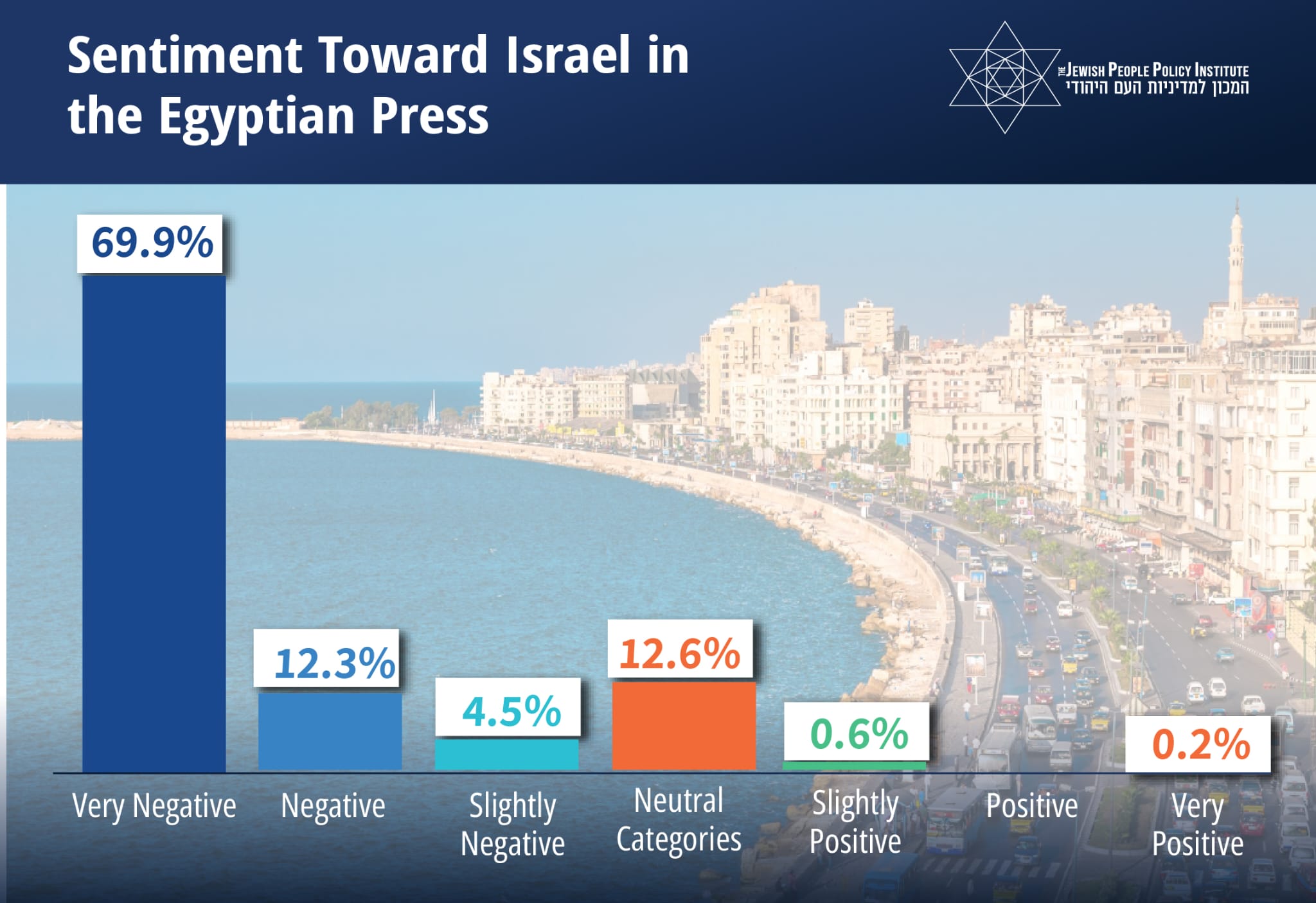
A new AI study by the Jewish People Policy Institute (JPPI) examined how the Egyptian establishment shapes public perceptions of Israel and the Jewish people.
The study was published amid ongoing reports of repeated violations of the Camp David Accords by the Egyptian military in Sinai — where it is expanding its capabilities in concerning ways — and rising tensions between the two countries over the Philadelphi Corridor, as well as Egypt’s staunch opposition to absorbing Gazans into its territory.
The study was conducted with advanced AI tools using keywords related to Israel and Zionism, along with their various connotations, as well as references to Jews.
Expert researchers from the Diane and Guilford Glazer Information and Consulting Center at the Jewish People Policy Institute (JPPI) analyzed nearly 4,000 opinion and commentary articles from Egypt’s two leading state-controlled newspapers: Al-Ahram, the country’s largest and most influential daily, and Al-Gomhuria, which is closely aligned with government authorities.
These articles were published over a 15-month period, from January 2024 to March 2025.
Key Findings:
The study found that coverage of Israel is extensive: approximately 30% of all articles analyzed included references to Israel based on the examined keywords.
Among those articles that mentioned Israel, around 70% expressed “very negative” sentiments, while around 12.5% expressed “negative” sentiments, and approximately 4.5% expressed “somewhat negative” sentiments.
In total, 87% of opinion and commentary pieces about Israel were negative.

Many of these articles portray Israel as a “colonialist entity,” “the Zionist enemy,” and “a cancerous plague,” while accusing it of seeking regional expansion and the displacement of Palestinians.
Notably, only 12.5% of articles were categorized as neutral, and less than 1% were classified as positive.
Antisemitic Content:
The next stage of the study aimed to distinguish between criticism of Israel or Zionism and outright antisemitism. The researchers defined antisemitism as including:
•Denial of Jewish religion or identity
•Use of negative Jewish stereotypes (e.g., greed, betrayal)
•Blaming Jews for global problems
•Holocaust denial and related claims
Using AI-based analysis and filtering methods, researchers identified approximately 180 articles (opinion and commentary) that included references to Jews. Of these, about 30% were explicitly antisemitic, employing stereotypes such as Jewish greed, referencing, “The Elders of Zion,” depicting Jews as disloyal and traitorous, and denying the Holocaust — claiming that far fewer than six million Jews were murdered.
Conclusion:
The findings indicate that Egypt’s state-controlled media, which operates under government oversight, devotes disproportionate attention to Israel and is overwhelmingly hostile toward it. Moreover, a significant portion of coverage crosses into outright antisemitism, with no less than 29% of articles mentioning Jews containing antisemitic tropes.

